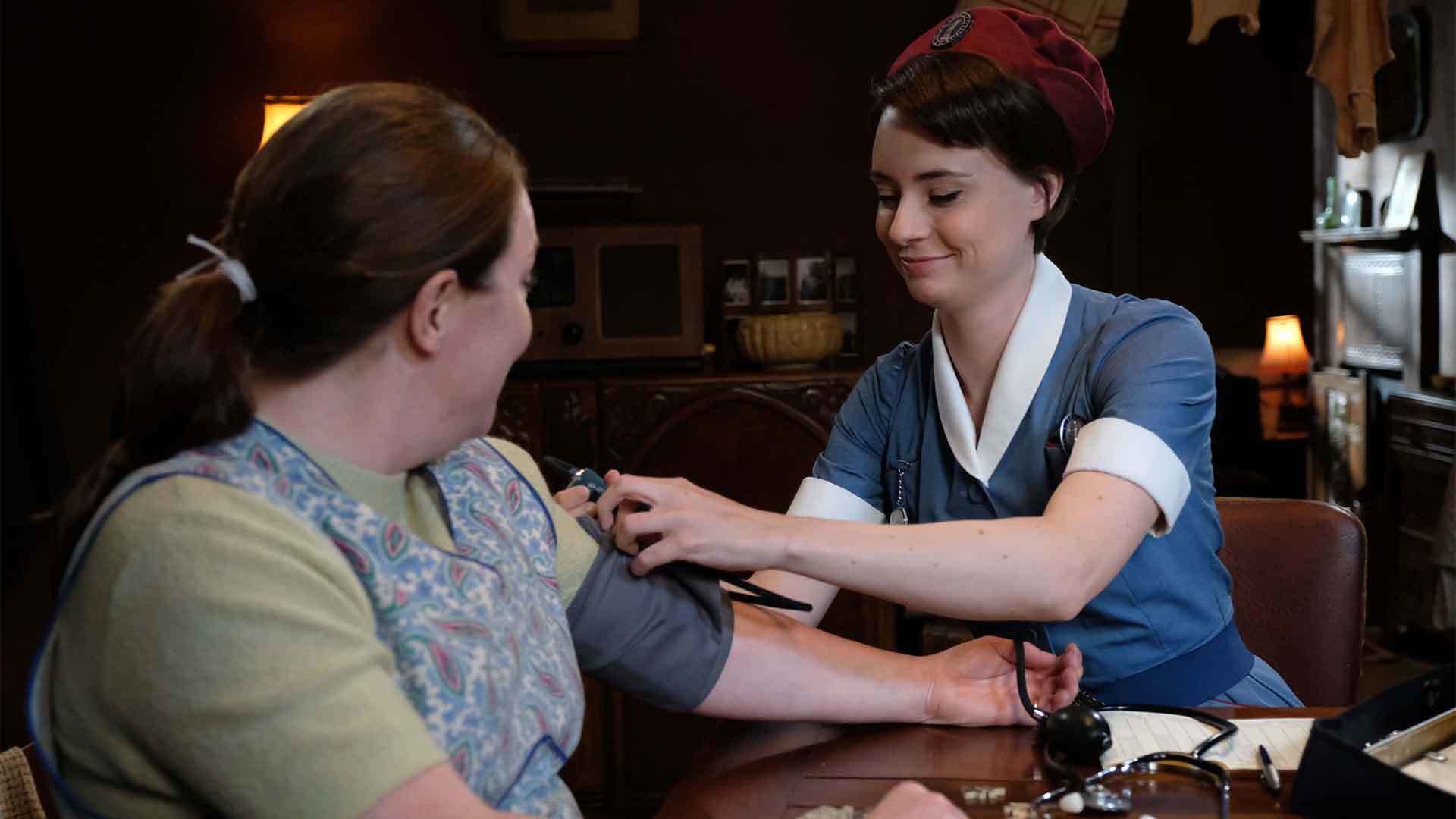
The episode begins with the notion that every birth is a mystery. In fact, life from conception to beyond death is a mystery. The burdens, wounds, scars and challenges others carry from the past or may have to endure in the future are often mysteries. Care providers often get an inside; up close view of these burdens and challenges. Interactions with those we care for sometimes reveal clues for the whys of mysterious actions and decisions. For me, this insight results in less judgment and more compassion. Looking deep often exposes the big picture.
As the advent of the measles vaccine is touched on in this episode I thought I might recount my own childhood encounter with measles in the late 1950s. The 2019 mystery is why many choose not to vaccinate.
Before the development of the vaccine, mothers were told that contracting measles during childhood was much safer than contracting it as an adult. A woman contracting measles during pregnancy could put her fetus at risk of miscarriage, deafness or heart defects, depending on stage of pregnancy.
Dutifully, my mother, along with all the other mothers, gathered their school aged children into the home of our neighborhood’s first measles victim. I recall it was a birthday party, so instead of cancelling, the opportunity was used to naturally immunize us all. This included my 2 brothers and me. Since measles is highly contagious, this was an effective strategy to induce a localized measles epidemic. We all got it, got over it and went on with our lives carrying immunity. Of course we were all privileged and well nourished leaving us not at risk for complications. I contracted childhood chicken pox and mumps as well. It was considered a routine part of childhood. No vaccines, no choice. Some may have been injured or died, but not us.
When my daughter was born in the 1980s, vaccines were well established and I didn’t hesitate to have her vaccinated. Although I did not fear the diseases, I did not fear the vaccines either. I felt it a duty of my privilege and a public responsibility. I have educated friends in health care who chose not to vaccinate their children for a variety of reasons. We did not argue about it. We simply agreed to disagree. We all chose what we felt best for our children and we respected each other for that.
The mystery is why we come to different conclusions about what is best.
The mystery is why we come to different conclusions about what is best. I can only speak for myself when I say that a factor in my decision is a belief in taking some burden of responsibility for what is best for my entire community, particularly for those who are more vulnerable. There are many compromises one makes to have the benefits of being part of a community. Some may agree but draw the line at injecting foreign substances into their bodies or those of their children. Some may say I’m naïve and just lucky my child had no severe reactions.
I am a believer in evidence-based practices and believe there is good evidence that vaccines carry more benefit than risk. Some may have had experiences causing them to be less trusting of science, health care or pharmaceutical industries. Fair enough. Our challenge has always been and will continue to be how to find an agreeable compromise between individual needs and community needs. Perhaps a bigger challenge is how to create a health care system that will be trusted to put safety above profit. The answers remain a mystery.